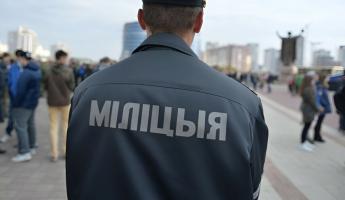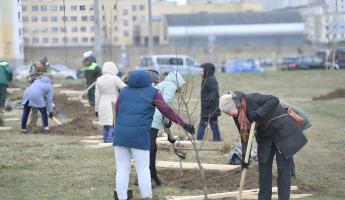The first deputy chairman of Russian Federation Council, Alexander Torshin, who is also deputy head of the Parliamentary Assembly of Belarus and Russia, said that Alexander Lukashenko will be more loyal to Moscow after the introduction of the European Union sanctions against the Belarusian leadership, despite the fact that "he may dislike Russia."
This was stated by the politician while commenting on the statement by the Russian Minister of Foreign Affairs Sergei Lavrov, who had condemned the persecution of the opposition in Belarus, but had not supported the U.S. and the EU’s decision to impose economic restrictions against the Belarus authorities, reports Russian service «Voice of America.»
«The relationship between presidents and the relationship between people are entirely different things. Most people in Russia, having relatives in Belarus, earning with the help of Belarus — they are totally indifferent to Lukashenko. On the other hand, Belarus is our neighbor, one should be very careful. Well, yes, sanctions against Belarus will be imposed — Lukashenko should be more loyal to Russia. Because words are one thing, but turnover, a huge turnover, is the other. Lukashenko may like or dislike Russia, criticize, but meanwhile a strong integration is going on and we are taking a huge amount of agricultural products away from Belarus,» said Alexander Torshin.
So, in his view, economic sanctions of the EU and the U.S. against Belarus are, in a sense, favorable to Russia. However, despite the political problems, as noted by the deputy chairman of the Council of Federation, there is more order and less unemployment in Belarus.
«Our Smolensk region borders on Belarus. One can see the difference, when passing Smolensk region and crossing the Belarusian border in Vitebsk region. Well, Lukashenko is a dictator, but there is order, cleanliness, absence of unemployment, and there is confidence in the future. And every ordinary Belarusian says: «Yes, Russians are brothers, but we do not want to live your life.» So it’s a very complicated issue,» stressed Alexander Torshin.
Russia Trying to Free its Citizens from Minsk for Two Months
State Secretary and Russian Deputy Foreign Minister Grigori Karasin met in Minsk with the Foreign Minister of Belarus Sergei Martynov to discuss the situation of Russian citizens Ivan Gaponov and Artem Breus, accused by the Belarusian authorities of involvement in riots and, thus, kept in custody. This was announced by Adviser of Russian Embassy in Belarus Vadim Gusev on February 9.
«Karasin discussed the fate of the arrested Russian citizens with Sergei Martynov in Minsk,» RIA Novosti news agency quotes Vadim Gusev.
«Russian Foreign Ministry attaches great importance to upholding the interests of its citizens abroad,» said the representative of the embassy.
As Telegraf previously reported, the citizens of the Russian Federation Artem Breus and Ivan Gaponov were arrested during mass demonstrations on December 19 in Minsk. After serving a 10-day arrest for «violation of the order of organization or holding mass events or picketing,» they were released on December 29, but on the same day arrested again.
Artem Breus and Ivan Gaponov were charged on January 5 under Article 293 of the Criminal Code of Belarus (organization and involvement in the riots), which is punishable by 15 years of imprisonment.
Later, on February 3, the detainees got their charges changed. To date, the Russians are only charged with an offense under paragraph 2 of Article 293 (riots). This article provides a penalty of imprisonment from three to eight years.
Russian authorities have repeatedly tried to secure the release of their citizens, but with no results. So, it became known on January 8 that the investigative authorities of Belarus refused to stop criminal proceedings against the Russians Ivan Gaponov and Artem Breus. Appellations of the Russian detainees’ advocates to terminate cases against their clients were rejected without any motivation.
Numerous violations of civil rights, registered by the European experts during the last presidential campaign in Belarus, forced the European Union to decide on January 31 to impose visa bans on 158 Belarusian officials, and freeze all the assets and economic resources of 157 officials.
Russian Foreign Minister Sergei Lavrov announced on February 2 that Russia considered the mass arrests in the aftermath of the presidential elections in Belarus as unacceptable. Nevertheless, according to the head of the Russian Foreign Ministry, Russia does not support the EU’s decision to impose sanctions on Belarus.


















